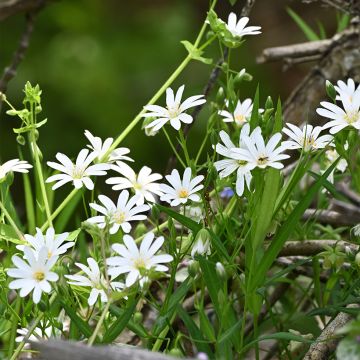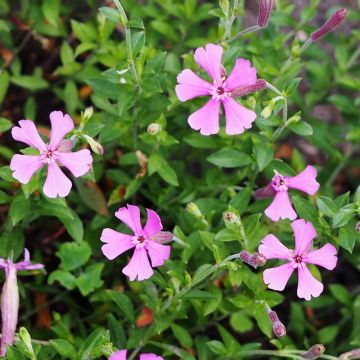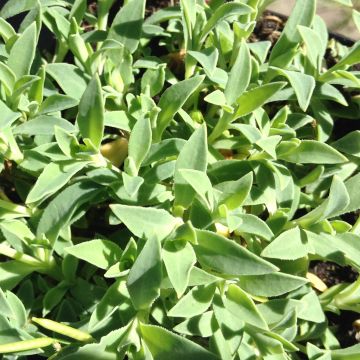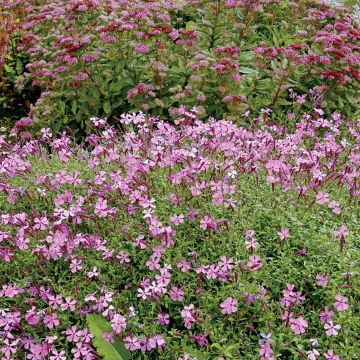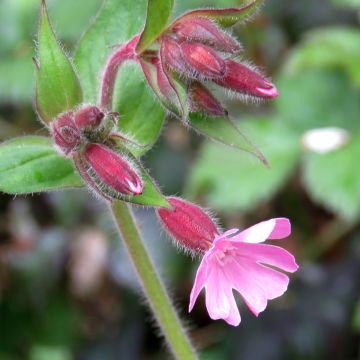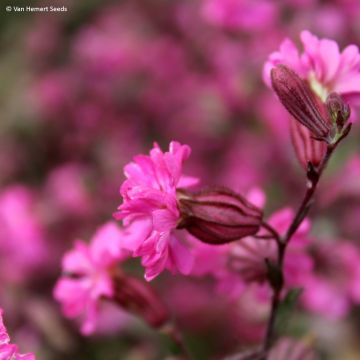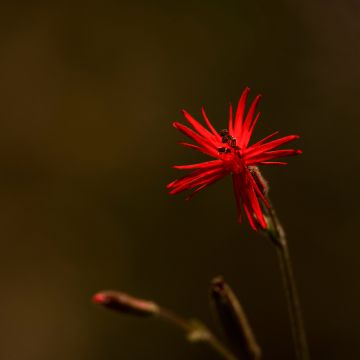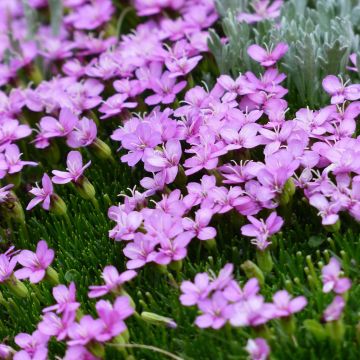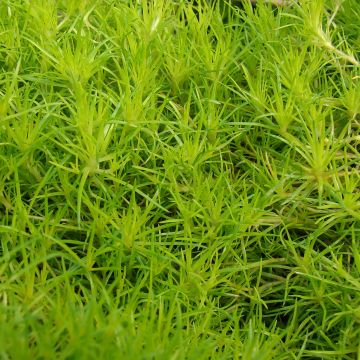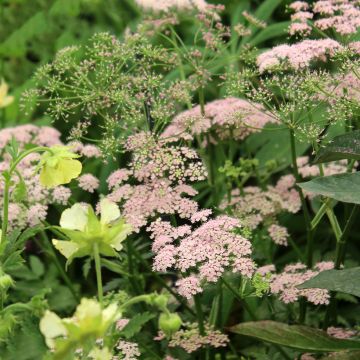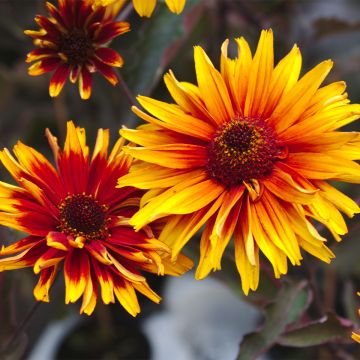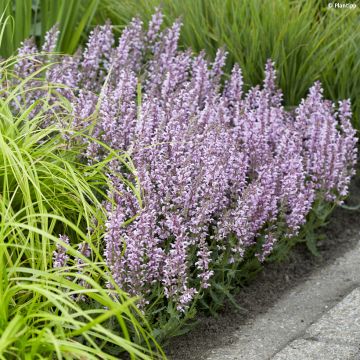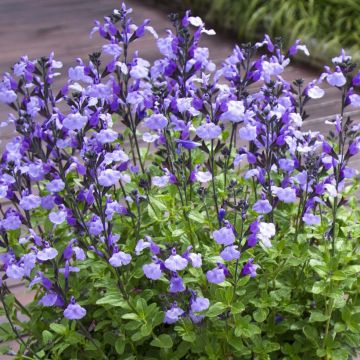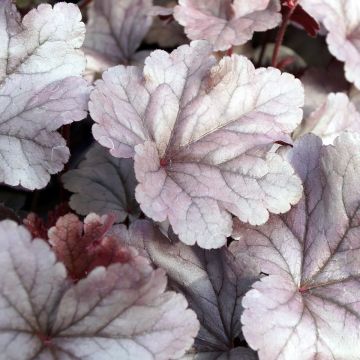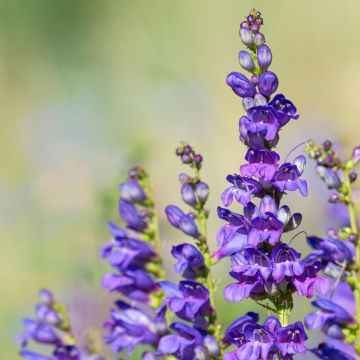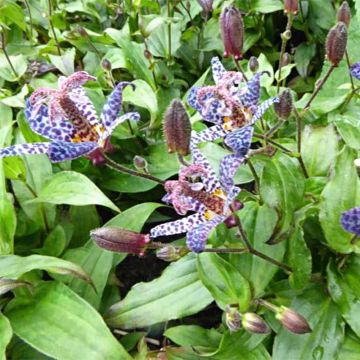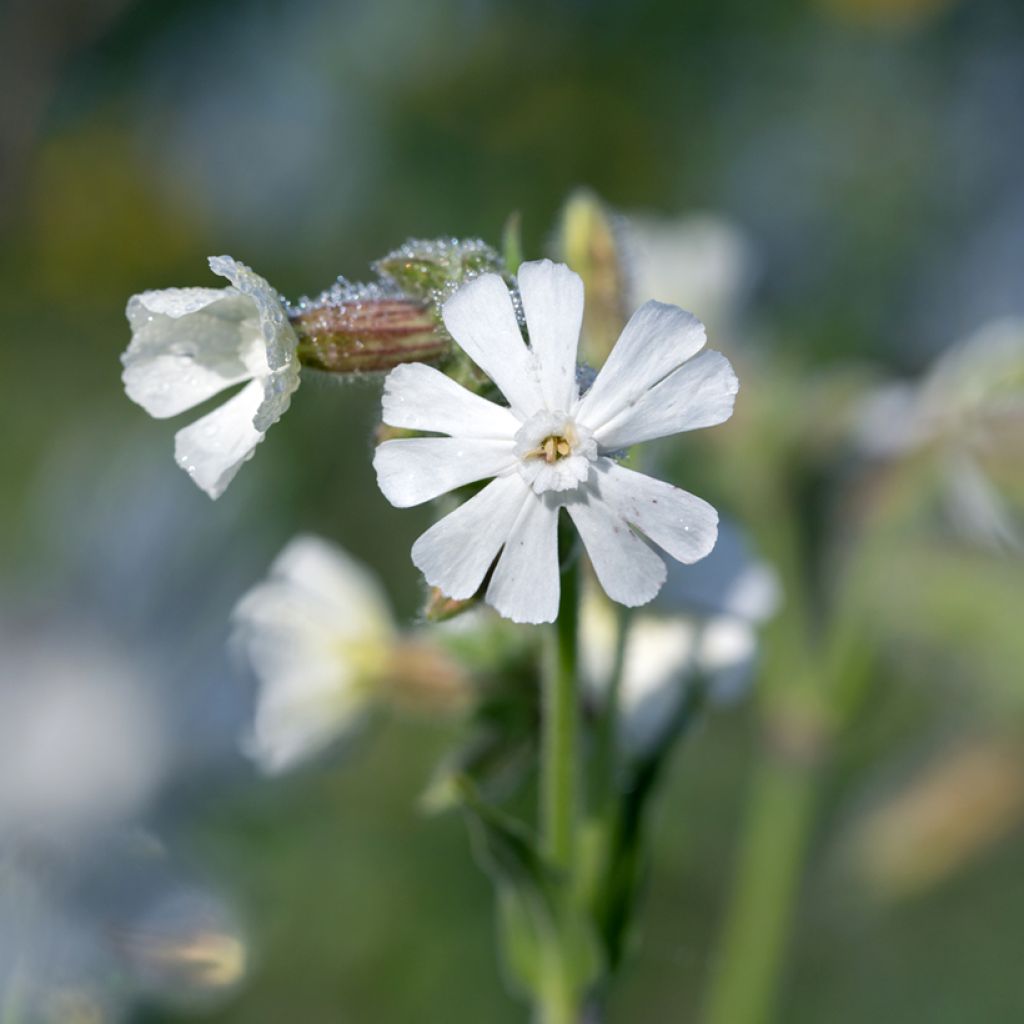

Silene latifolia subsp. alba - White campion
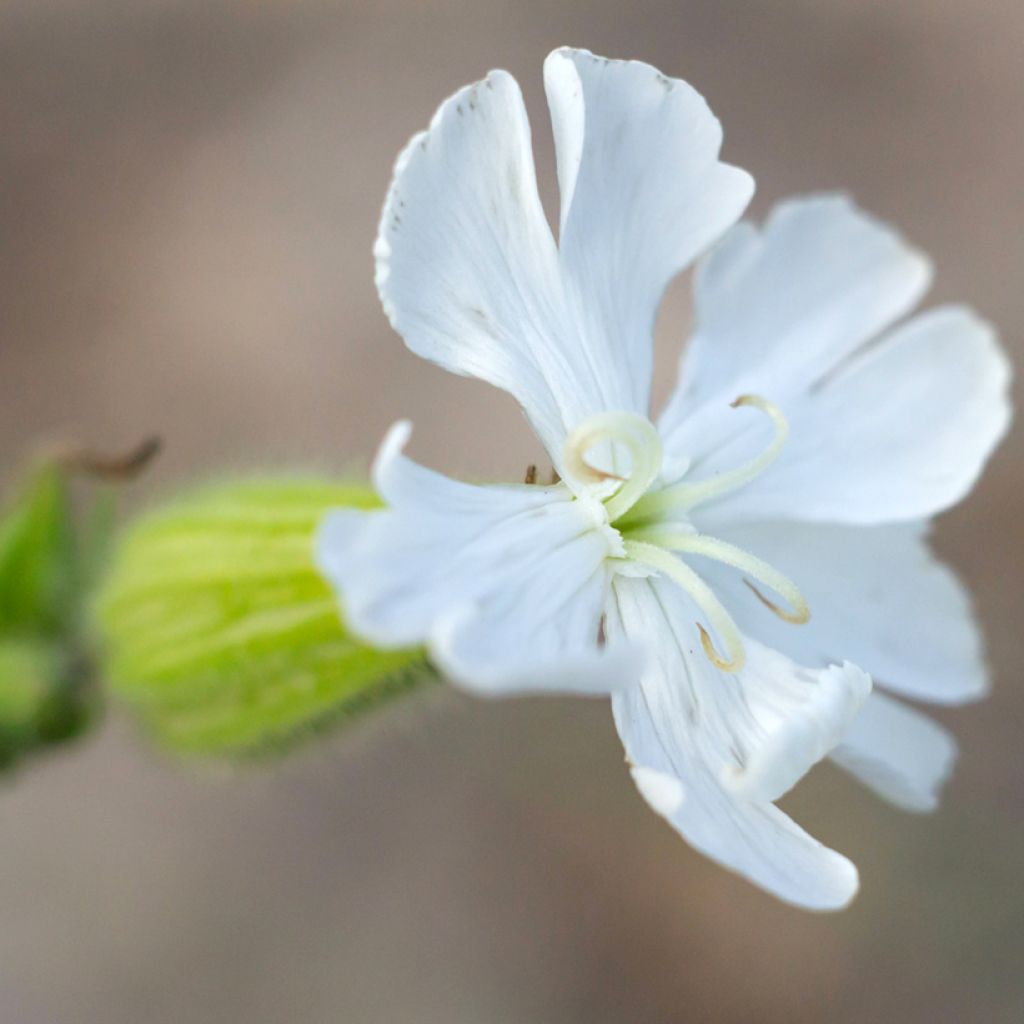

Silene latifolia subsp. alba - White campion
Silene latifolia subsp. alba - White campion
Silene latifolia subsp. alba
White campion, White cockle
Special offer!
Receive a €20 voucher for any order over €90 (excluding delivery costs, credit notes, and plastic-free options)!
1- Add your favorite plants to your cart.
2- Once you have reached €90, confirm your order (you can even choose the delivery date!).
3- As soon as your order is shipped, you will receive an email containing your voucher code, valid for 3 months (90 days).
Your voucher is unique and can only be used once, for any order with a minimum value of €20, excluding delivery costs.
Can be combined with other current offers, non-divisible and non-refundable.
Home or relay delivery (depending on size and destination)
Schedule delivery date,
and select date in basket
This plant carries a 12 months recovery warranty
More information
We guarantee the quality of our plants for a full growing cycle, and will replace at our expense any plant that fails to recover under normal climatic and planting conditions.
Would this plant suit my garden?
Set up your Plantfit profile →
Description
Silene latifolia subsp. alba, commonly known as the White Campion, is a short-lived perennial or biennial, commonly found along roadsides and paths. It produces masses of white flowers with 5 petals during the summer, some with a swollen calyx, open and fragrant in the evening, on a clump of elliptical green leaves. Visited by numerous moths, this plant has its place in native flower gardens, in a bed or large border. Very hardy and accommodating, it self-sows spontaneously and adapts to all climates.
Silene latifolia subsp. alba, also known as Silene alba, Lychnis alba, Silene pratensis, Melandrium album, belongs to the Caryophyllaceae family. It is a wild plant found up to 1,400 m altitude, along roadsides and paths, hedgerows, in moist to dry and mainly limestone soils. The growth of this perennial is quite rapid, reaching approximately 70 cm to 1 m in height and 30 cm in width at maturity. It develops a woody crown, slightly suckering, and roots that can penetrate up to 1 m deep into the soil. In spring, several erect stems emerge from the crown, adorned with ovate to lanceolate, slightly hairy leaves, with a slightly rubbery texture and a bluish-green colour. The basal leaves can reach up to 12 cm in length. The abundant and prolonged flowering occurs between May and July, depending on the climate. The cyme inflorescence, developing at the top of the stems, is composed of 3 to 20 flowers. Each flower, with 5 star-shaped lobes, measures approximately 3 cm in diameter. The plant is dioecious, with male flowers having a narrow calyx and female flowers with a swollen calyx. The flowers are white. The fruit is a capsule measuring up to 1.4 cm long, concealed in the swelling formed by the fused sepals that persist after flowering. The above-ground vegetation is deciduous and dries up in autumn. Like many other Silenes that do not open before dusk, they emit a strong fragrance that attracts moths from a relatively long distance to come and suck nectar.
Cultivating White Campion, also known as White Silene or Meadow Silene, presents no difficulty, as its cold resistance is excellent and the plant tolerates summer drought well once deeply rooted. There are plenty of association ideas, in a large wild bed, a flowery meadow, or an English-style mixed border. Its bucolic flowering is perfectly enhanced by the wild charm of grasses, as well as by the blue of Perovskias or the red of its American cousin, Silene regia. Asters blooming in summer will also be lovely companions, as well as coneflowers, thistles, or perennial sunflowers, for example, Helianthus salicifolius.
In the kitchen: the flowers and leaves are edible when young, but become bitter and potentially toxic on mature plants due to their saponin content. The young leaves are slightly sweet and can be used in salads, soups, and gratins.
Report an error about the product description
Silene latifolia subsp. alba - White campion in pictures


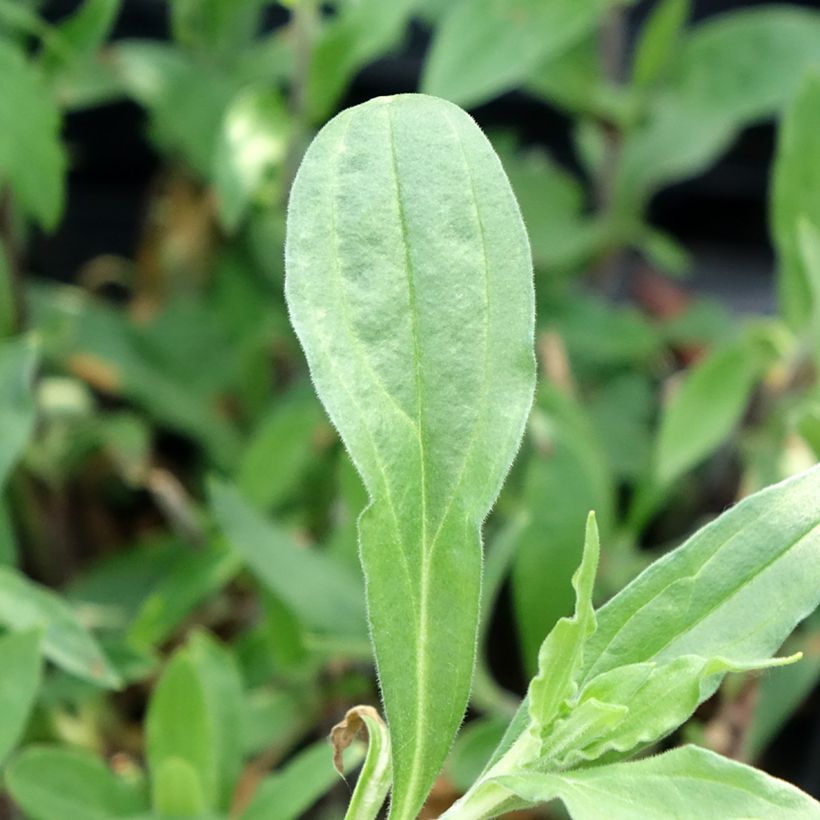

Flowering
Foliage
Plant habit
Botanical data
Silene
latifolia subsp. alba
Caryophyllaceae
White campion, White cockle
Silene alba, Lychnis alba, Silene pratensis, Melandrium album
Western Europe
Other Silene - Campion
View all →Planting and care
Plant the White Companion in a well-prepared and loosened ordinary garden soil. Not very demanding, it prefers soils with a tendency towards limestone and clay, deep enough to allow it to root well. Once well established, the young plant proves resistant to drought. Choose a sunny exposure, even partially shaded in the afternoon in our hottest regions. The common catchfly has no specific enemies in our gardens.
Planting period
Intended location
Care
This item has not been reviewed yet - be the first to leave a review about it.
Similar products
Haven't found what you were looking for?
Hardiness is the lowest winter temperature a plant can endure without suffering serious damage or even dying. However, hardiness is affected by location (a sheltered area, such as a patio), protection (winter cover) and soil type (hardiness is improved by well-drained soil).

Photo Sharing Terms & Conditions
In order to encourage gardeners to interact and share their experiences, Promesse de fleurs offers various media enabling content to be uploaded onto its Site - in particular via the ‘Photo sharing’ module.
The User agrees to refrain from:
- Posting any content that is illegal, prejudicial, insulting, racist, inciteful to hatred, revisionist, contrary to public decency, that infringes on privacy or on the privacy rights of third parties, in particular the publicity rights of persons and goods, intellectual property rights, or the right to privacy.
- Submitting content on behalf of a third party;
- Impersonate the identity of a third party and/or publish any personal information about a third party;
In general, the User undertakes to refrain from any unethical behaviour.
All Content (in particular text, comments, files, images, photos, videos, creative works, etc.), which may be subject to property or intellectual property rights, image or other private rights, shall remain the property of the User, subject to the limited rights granted by the terms of the licence granted by Promesse de fleurs as stated below. Users are at liberty to publish or not to publish such Content on the Site, notably via the ‘Photo Sharing’ facility, and accept that this Content shall be made public and freely accessible, notably on the Internet.
Users further acknowledge, undertake to have ,and guarantee that they hold all necessary rights and permissions to publish such material on the Site, in particular with regard to the legislation in force pertaining to any privacy, property, intellectual property, image, or contractual rights, or rights of any other nature. By publishing such Content on the Site, Users acknowledge accepting full liability as publishers of the Content within the meaning of the law, and grant Promesse de fleurs, free of charge, an inclusive, worldwide licence for the said Content for the entire duration of its publication, including all reproduction, representation, up/downloading, displaying, performing, transmission, and storage rights.
Users also grant permission for their name to be linked to the Content and accept that this link may not always be made available.
By engaging in posting material, Users consent to their Content becoming automatically accessible on the Internet, in particular on other sites and/or blogs and/or web pages of the Promesse de fleurs site, including in particular social pages and the Promesse de fleurs catalogue.
Users may secure the removal of entrusted content free of charge by issuing a simple request via our contact form.
The flowering period indicated on our website applies to countries and regions located in USDA zone 8 (France, the United Kingdom, Ireland, the Netherlands, etc.)
It will vary according to where you live:
- In zones 9 to 10 (Italy, Spain, Greece, etc.), flowering will occur about 2 to 4 weeks earlier.
- In zones 6 to 7 (Germany, Poland, Slovenia, and lower mountainous regions), flowering will be delayed by 2 to 3 weeks.
- In zone 5 (Central Europe, Scandinavia), blooming will be delayed by 3 to 5 weeks.
In temperate climates, pruning of spring-flowering shrubs (forsythia, spireas, etc.) should be done just after flowering.
Pruning of summer-flowering shrubs (Indian Lilac, Perovskia, etc.) can be done in winter or spring.
In cold regions as well as with frost-sensitive plants, avoid pruning too early when severe frosts may still occur.
The planting period indicated on our website applies to countries and regions located in USDA zone 8 (France, United Kingdom, Ireland, Netherlands).
It will vary according to where you live:
- In Mediterranean zones (Marseille, Madrid, Milan, etc.), autumn and winter are the best planting periods.
- In continental zones (Strasbourg, Munich, Vienna, etc.), delay planting by 2 to 3 weeks in spring and bring it forward by 2 to 4 weeks in autumn.
- In mountainous regions (the Alps, Pyrenees, Carpathians, etc.), it is best to plant in late spring (May-June) or late summer (August-September).
The harvesting period indicated on our website applies to countries and regions in USDA zone 8 (France, England, Ireland, the Netherlands).
In colder areas (Scandinavia, Poland, Austria...) fruit and vegetable harvests are likely to be delayed by 3-4 weeks.
In warmer areas (Italy, Spain, Greece, etc.), harvesting will probably take place earlier, depending on weather conditions.
The sowing periods indicated on our website apply to countries and regions within USDA Zone 8 (France, UK, Ireland, Netherlands).
In colder areas (Scandinavia, Poland, Austria...), delay any outdoor sowing by 3-4 weeks, or sow under glass.
In warmer climes (Italy, Spain, Greece, etc.), bring outdoor sowing forward by a few weeks.






























